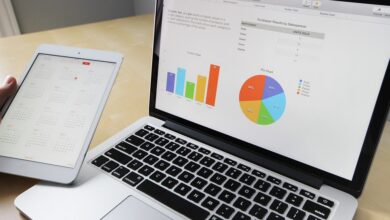Maximizing Efficiency and Productivity: The Benefits of Using a Calendar

Maximizing Efficiency and Productivity: The Benefits of Using a Calendar
In the fast-paced world we live in today, staying organized and managing our time effectively is crucial to personal and professional success. One tool that has stood the test of time and proven to be highly effective in maximizing efficiency and productivity is the humble calendar. Whether in digital or physical form, a calendar is a simple yet powerful tool that helps us plan, prioritize, and stay on track with our commitments and goals. In this article, we will explore the numerous benefits of using a calendar and how it can optimize our daily lives.
First and foremost, a calendar provides us with a visual representation of our time. By mapping out our days, weeks, and months, we gain a clear understanding of how our time is allocated and where our priorities lie. With this valuable insight, we can make informed decisions about how we spend our time and identify any potential gaps or conflicts in our schedule. By having a holistic view of our time, we can avoid overcommitting ourselves and ensure that important tasks and activities are given the attention they deserve.
Furthermore, a calendar helps us establish structure and routine in our lives. By consistently using a calendar, we can establish a daily or weekly routine that helps us operate efficiently and maintain focus on our most important tasks. Having a predefined structure can help reduce the mental energy required for decision-making, as we can simply refer to our calendar for guidance. This allows us to allocate our energy and cognitive resources towards task execution rather than spending unnecessary time and effort on planning.
Moreover, using a calendar enables effective time management. By classifying our tasks, appointments, and deadlines in specific time slots, we can assign appropriate amounts of time to each activity. This allows us to distribute our workload evenly and avoid falling prey to procrastination or overload. By setting explicit time boundaries for our tasks, we can also avoid the tendency to spend excessive time on less important activities, leading to increased efficiency. Prioritizing our tasks and allocating time to them in the calendar helps ensure that we tackle important tasks first, preventing them from being overshadowed by less significant ones.
Another advantage of using a calendar is its ability to enhance accountability. When we schedule our tasks and commitments in a calendar, we create a sense of commitment and responsibility towards completing them. Seeing our obligations laid out in front of us can motivate us to follow through and avoid procrastination. Additionally, sharing our calendars with others, such as colleagues or family members, fosters transparency and effective collaboration. By sharing our availability and important dates, we can avoid misunderstandings, schedule conflicts, and missed deadlines. This promotes accountability and fosters a culture of reliability and trust among team members.
Moreover, utilizing a calendar can help in the planning and coordination of long-term goals and projects. By breaking down larger goals into smaller, actionable tasks and scheduling them accordingly, we ensure that progress is made consistently over time. The ability to visualize the timeline of a project or goal allows us to anticipate any bottlenecks or delays, allowing for adjustments to be made in advance. This ensures that projects stay on track and are completed within set deadlines. By having a structured plan and clear milestones, we can eliminate guesswork and work towards our objectives with clarity and purpose.
In addition, a calendar can aid in managing our personal and professional commitments simultaneously. With the ability to create multiple calendars or color-code different types of activities, we can separate and prioritize our personal and professional tasks effectively. This is particularly useful for individuals who juggle multiple roles or have flexible work arrangements. By keeping our personal and professional lives separate yet integrated through a unified calendar system, we can strike a healthy work-life balance and avoid burnout or neglecting important personal obligations.
Furthermore, using a calendar facilitates effective time blocking. Time blocking involves dedicating specific blocks of time for certain activities or types of work. By creating designated time slots for different types of tasks such as meetings, focused work, email replies, or breaks, we can ensure that our time is optimized and well-utilized. Time blocking enables us to minimize distractions and interruptions, as we have allocated specific time periods to focus on specific activities. This structured approach helps increase productivity and concentration, as well as reducing decision fatigue.
Lastly, a calendar enables easy accessibility and portability. With the availability of digital calendars on smartphones, tablets, and computers, we can access and update our schedule anytime and anywhere. This allows us to stay organized and adapt to changes on the go. Additionally, syncing our calendar across multiple devices and platforms ensures that we have a consistent and up-to-date view of our schedule at all times. Whether attending a conference or running errands, having our calendar readily accessible ensures that we have all the information we need at our fingertips.
In conclusion, utilizing a calendar has numerous benefits that can greatly enhance our efficiency and productivity. By providing a visual representation of our time, establishing structure and routine, enabling effective time management, enhancing accountability, aiding in long-term planning and coordination, managing personal and professional commitments simultaneously, facilitating time blocking, and providing easy accessibility, a calendar becomes an indispensable tool in our daily lives. It empowers us to make deliberate choices about how we spend our time and enables us to maximize our productivity while maintaining balance and focus. So, why not start using a calendar today and reap the benefits it has to offer?





